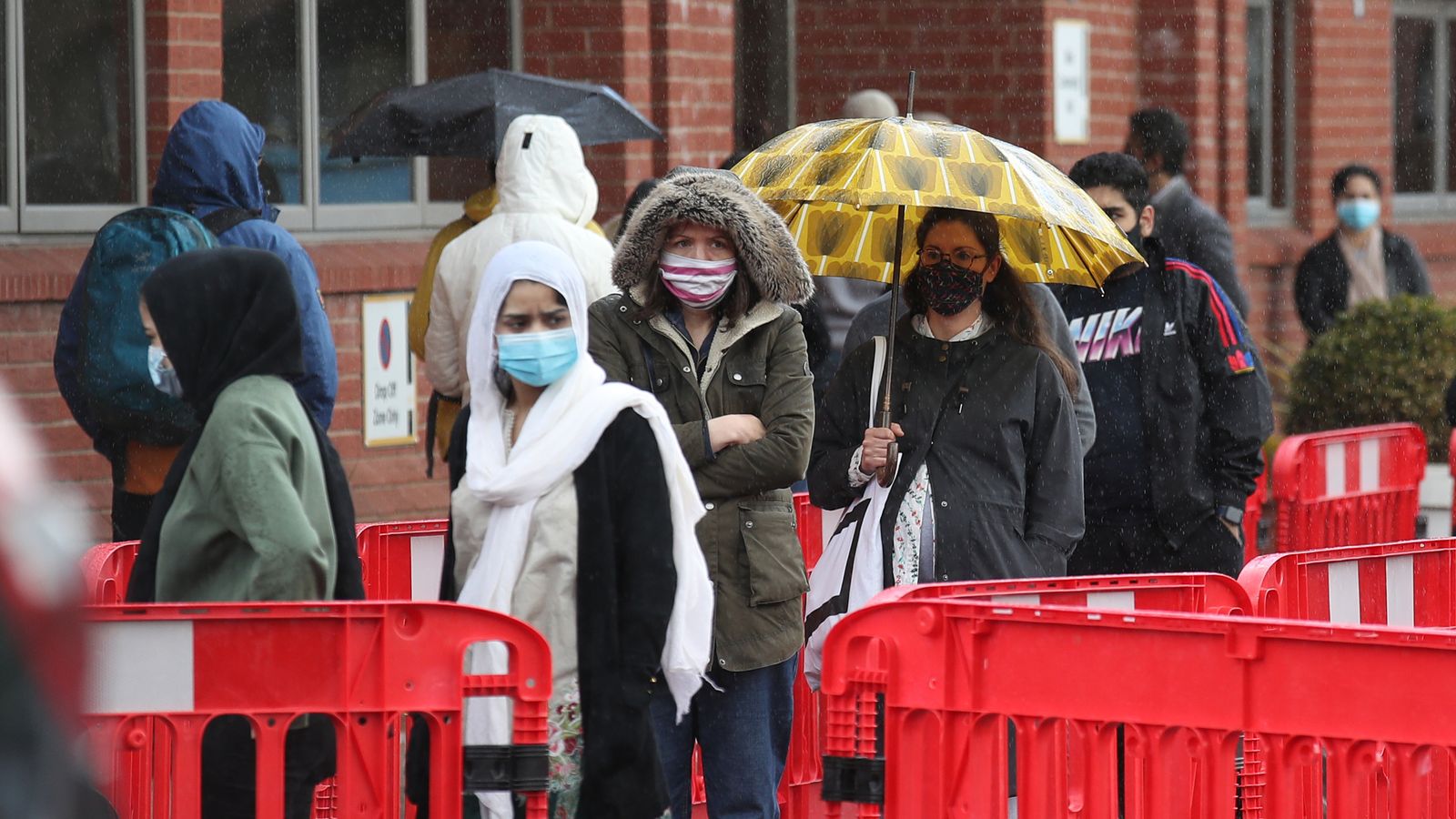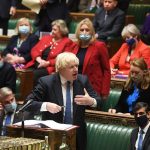The government was not as prepared for the pandemic as it could have been, according to its own spending watchdog.
A report by the National Audit Office (NAO) found officials “lacked detailed contingency plans to manage the unfolding situation” when it began early last year.
In future, officials should make better use of data, improve the resilience of key services and adopt a better approach to preparing for crises, the NAO said.
However, it did say there were also examples of “impressive” national and local responses, such as the successful vaccine rollout.
More than 127,000 people in the UK have died within 28 days of a positive COVID-19 test and more than four million have contracted the virus.
The prime minister last week announced a public inquiry into the government’s handling of the pandemic, an outcome that bereaved families and opposition MPs have been demanding for months.
Boris Johnson said the inquiry, set to begin in spring next year, would put “the state’s actions under the microscope”.
The NAO report is not the first to conclude the UK was not prepared enough for a pandemic.
Last year, it was revealed a secret Whitehall document produced in 2017 had warned the government’s plans for dealing with a health pandemic were “not sufficient”.
It said contingencies worked up in the case of an outbreak would not be able to cope and concerns were also raised about whether the social care system could provide the level of support needed.
Please use Chrome browser for a more accessible video player
The latest report from the NAO also raised concerns about how the pandemic has exacerbated inequalities.
Almost two million people have not worked for at least six months as long-term furlough has become a widespread consequence of the pandemic, according to research by the Resolution Foundation.
The NAO said issues such as an unreformed adult social care system, old IT systems, financial pressures on services and workforce shortages will need long-term solutions.
Gareth Davies, the head of the NAO, said: “COVID-19 has required government to respond to an exceptionally challenging and rapidly changing threat. There is much to learn from the successes and failures in government’s response and this report is our initial contribution to that process.
“Applying these lessons is not only important for the remaining phases of the current pandemic but should also help better prepare the UK for future emergencies.”






















